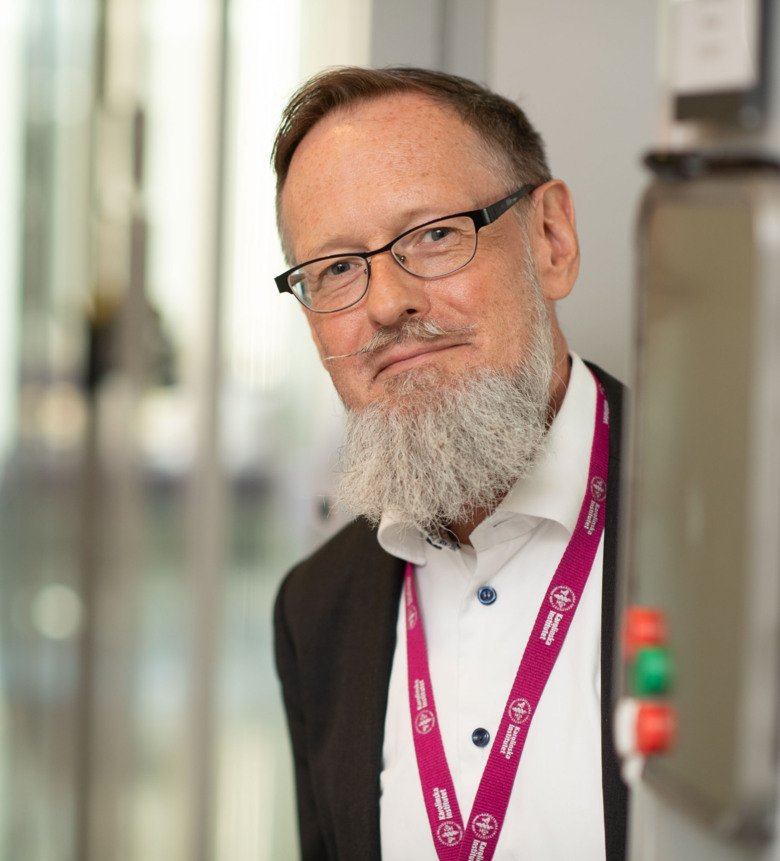From patients’ stigma to early detection of cancer
Lars E Eriksson researches earlier detection of lung cancer through the charting of early symptoms and biomarkers. He also researches organisational issues in healthcare as well as stigma and quality of life in patients with chronic infections like HIV.

What are you researching?
“I conduct nursing research, usually in combination with a natural-science perspective. The reason is that I have two basic professions, as a nurse and a biochemist. My current research has three lines: stigma and quality of life in patients with different chronic diagnoses, the early detection of lung cancer and organisational research to improve the healthcare work environment.”
What have you found so far?
“My research on stigma and quality of life began with my thesis on living with HIV after the arrival of anti-retroviral drugs. I’ve since expanded it to patients with health issues like multi-resistant bacteria and now COVID. One conclusion is that these groups meet with discrimination and vilification, including from healthcare professionals. A greater awareness is needed on what the infections entail and how the patients are to be cared for.
As for lung cancer, which is often detected late and therefore has a high fatality rate, we’ve shown that patients often experience early symptoms. Although they are usually quite vague, with a detailed charting of the symptoms in 700 patients, we’ve found a number of factors that when aggregated can determine the patient’s risk. We hope to be able to develop this into a useful tool in primary care for the identification of patients who need further examination.
In organisational research, we’re in the middle of a four-year trial about empowering nurses and giving them more influence over their work. This we’re doing at 60 European hospitals.”
What about your teaching responsibilities?
“The professorship entails a particular responsibility for developing the research basis of the nursing programmes. I’m keen on getting more teachers with a doctoral degree but also want to help the existing ones get more time for research at a teaching-intensive department. I’m also engaged in the issue of career development on pedagogical qualifications at KI.”
Text: Anders Nilsson, in translation from Swedish
First published in the booklet ‘From Cell to Society 2022’
About Lars E Eriksson
Professor of Nursing at the Department of Neurobiology, Care Sciences and Society
Lars Eriksson was born in Järvsö in 1965. He trained as a nurse at the University College of Health Sciences in Stockholm, graduating in 1985, and has long clinical experience as a nurse, including as a coordinator of clinical HIV trials at the former Swedish Institute for Communicable Disease Control (now the Swedish Public Health Agency).
Eriksson studied biochemistry at Stockholm University, graduating in 2001. Since earning his PhD from KI in 2003, he has worked at KI as a teacher and researcher. He was made docent in 2009. Since 2013, he has also had a part-time engagement, currently as professor at the School of Health and Psychological Sciences, City, University of London, UK.
Lars E Eriksson was appointed Professor of Nursing at Karolinska Institutet on 1 October 2021.
